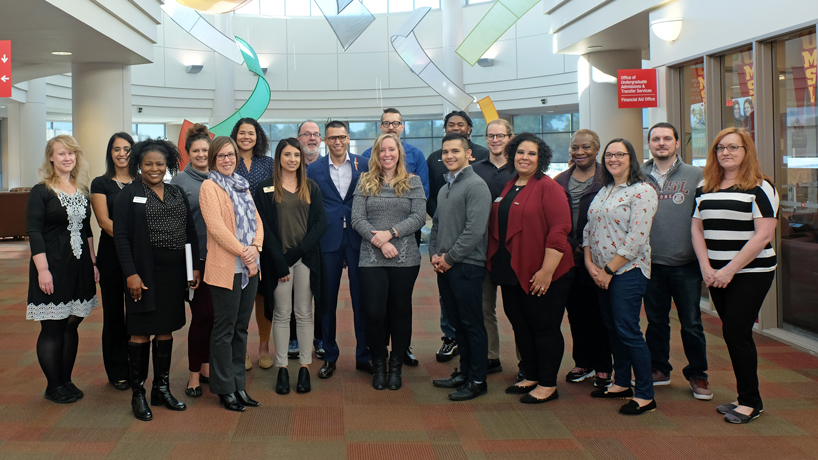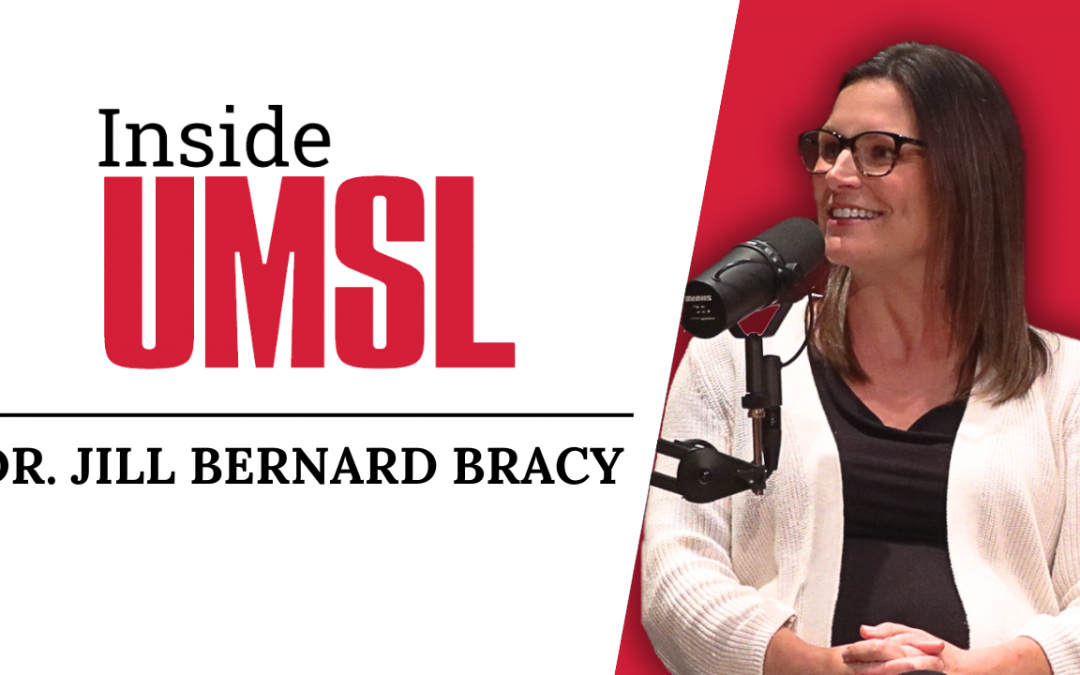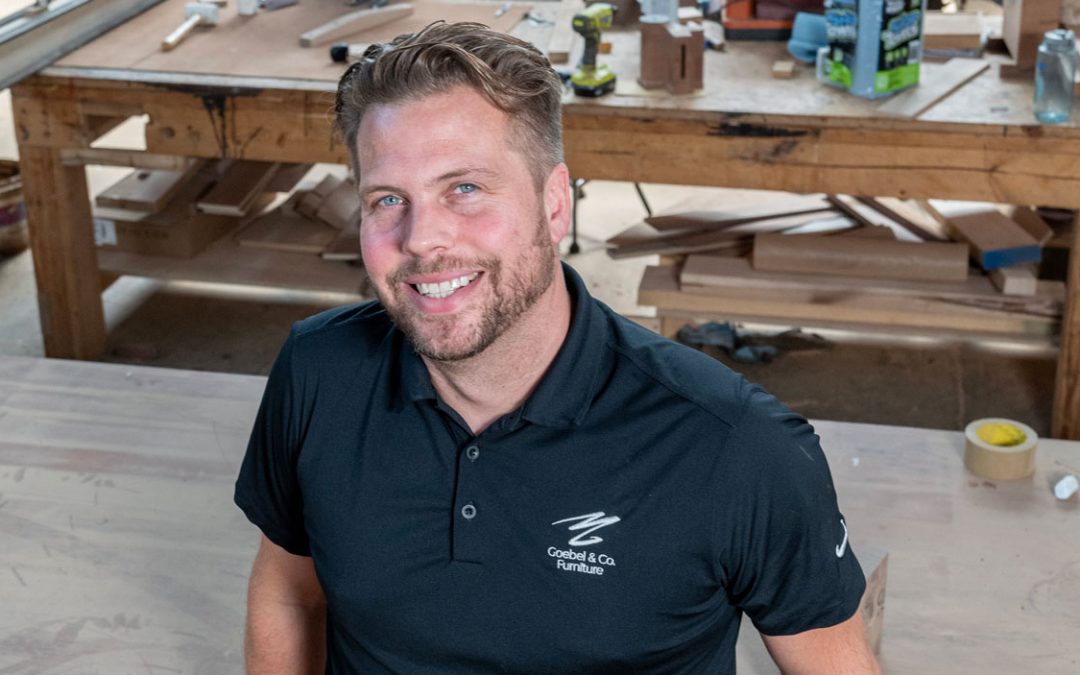
The Staff Association Council included 25 elected members, including an executive board. Members come from a variety of departments across the campus. (Photo by August Jennewein)
More than 1,000 dedicated, diverse staff members make the University of Missouri–St. Louis campus run each day. They don’t always have the chance to cross paths, though.
The UMSL Staff Association is one way staff members can connect across departments.
“I’ve always enjoyed it because it gives me an opportunity to meet the folks on campus that I wouldn’t normally interact with,” said Tiffany Izard-Magee, student success and retention coordinator in the College of Nursing and chair of the Staff Association Council.
The Staff Association’s mission is to foster unity between all employees and to give them a venue to consider important workplace issues and to voice concerns to the UMSL administration. It, and its 25-person elected Council, is part of a shared governance model on campus.
The three-pronged University Assembly is comprised of the Faculty Senate, the Staff Association and Student Government Association and is designed to allow all constituents of the university to communicate with administrators.
Harry Hawkins, LGBTQ+ coordinator and vice chair of the Staff Association Council, noted that other University of Missouri System schools have official faculty, staff and student bodies but the collaborative nature at UMSL is unique among them.
“I think that’s something that UMSL does really well, allowing voices from all the different groups on campus to be in the room,” Hawkins said. “That’s how we’re cohesive because at the end of the day, we’re all on the same team.”
Members of the Council, including a four-person executive board, can come from any department and are elected at-large. Kasey Fraser-Smith and Curt Coonrod serve on the board with Hawkins and Izard-Magee as treasurer/secretary and advisor respectively.
“We’re very diverse,” Hawkins said. “We were a little Student Affairs heavy for a bit, but it seems like we’re very spread out.”
Tim Wombles, a strategic communications associate in University Marketing and Communications, was nominated and then elected this past summer. Like Izard-Magee, Wombles has enjoyed the opportunity to meet people across campus. The experience has also helped him put faces to names he’s only seen in emails.
“It’s also nice to connect to people who care about the same campus issues you do,” he said.
Hawkins and Izard-Magee emphasized that all staff members are welcome to attend meetings and events. But it’s the elected council members who have the ability to vote on certain matters.
The open meetings provide an opportunity for staff members to learn more about things such as university benefit changes or policy changes and to bring up any grievances. Hawkins said the meetings are essential for feedback on those policies, as well.
“The main purpose is to provide that overall voice to staff,” Izard-Magee said. “Obviously, if we look at the hierarchical structure within the university, staff members have various places, and we want to ensure that all voices are heard.”
This school year, the Council is focused on three main events: an all-staff meeting in March, Focus on the Future and the Staff Association Field Day. Hawkins and Izard-Magee expect the all-staff meeting to be well attended, especially after the room had to be extended for the last meeting. It’s a chance for employees to get reacquainted with coworkers and recharge.
“It builds morale, which is very important,” Hawkins said.
The Staff Association Field Day also builds morale through fun outdoor activities such as whiffle ball, while Focus on the Future is a professional development conference.
Going forward, Izard-Magee also wants the Council to focus on five key goals: promoting participation and decision-making that impacts the UMSL community, utilizing and demonstrating the value of the Staff Association annual budget, focusing on communication, completing those three events and encouraging training for low- and mid-level management.
Aside from the Council’s work on the UMSL campus, it also engages with UM System officials as part of the Intercampus Staff Advisory Council. This month, Izard-Magee worked with them on the UM System awards, and in July, she presented staff members’ accomplishments at a Board of Curators meeting.
“I discussed the work that the Student Success Task Force has been doing,” Izard-Magee said. “For example, the withdrawal surveys – making sure that data is well known – and that there’s a process behind how we look at those withdrawal surveys and how we reach out to those students.”
Hawkins said being able to highlight those contributions is really impactful. Overall, he’s glad that staff members have a seat at the table, and he wants them to know they always have the support of the Staff Association.
“We get different perspectives, different opinions, everyone has different backgrounds based on where they are at the university,” he said. “It’s always interesting to hear those perspectives, especially when we’re thinking about something new or talking about a policy.”














